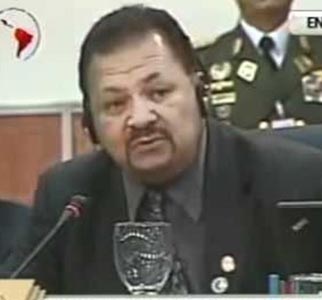Former PPP/C government official, Geoffrey Da Silva has expressed concern that the current administration is proceeding on the same corrupt trajectory as its predecessor.
Da Silva, who has written a series of letters to the press in recent months on a wide range of topics including good governance, corruption, race relations and the oil economy cited a number of troubling occurrences in a missive in yesterday’s Sunday Stabroek.
Among these were that under the current PPP/C government the beneficial owners of the Canje and Kaieteur oil blocks have not been revealed and the review of the Payara oil project has not been published. He said that a new company, whose owner is related to a very senior official, has been given infrastructure contracts. Da Silva, who served for a long period under the PPP/C as head of Go-Invest noted that some procurement bids were withdrawn and re-submitted a number of times. He did not cite a specific example but this has occurred in the agricultural sector with sheet pilings.
Da Silva, who also served as Minister of Trade said that some contracts have been awarded to unqualified persons with political connections. The last Sunday Stabroek carried a report on the continuing questions surrounding the award of a school building contract to a company comprised of a DJ and football promoters.
Da Silva, who had a stint as Guyana’s Ambassador to Venezuela, also contended that “Some political appointees have been hired based mainly on party loyalty and not also on merit, that is, their integrity, ability, talent, effort and achievements”.
Pointing out that it is challenging to detect and prove corruption, Da Silva listed some ‘red flags’ that will help to detect corruption.
“[1] A purchase order or contract is awarded to a particular supplier or contractor who does not have the experience, the required facilities and resources. [2] Some legal requirements and regulations are bypassed. [3] Goods and services are purchased that are not necessary or appropriate for the institution to successfully function. [4] Goods or services are not delivered or they are substandard. [5] There are no documents to support unusually high fees, commissions and other expenses. [6] The supplier or contractor is urgently requesting advance cash payments. [7] A supplier or contractor wants payments to be made to a person or company other than his or her company. [8] There are close connections or links (through family members, relatives, friends and associates) between a particular official / employee and a supplier or contractor who insists that other staff should not be present in meetings to discuss the contract or purchase order. [9] Some qualified suppliers and contractors are not chosen because of their race / ethnicity, gender, age or class. [10] Expenditures for travel expenses and hospitality are not backed up with receipts and other supporting documents”.
Arguing that corruption is one of the most blatant expressions of inequality, Da Silva said that less corruption means that more financial and physical resources would be available for higher wages and other benefits and it was therefore in the interest of all persons to fight this scourge.
He contended that whistleblowing on corruption is acceptable and should become a normal way of doing things.
“The priority for Parliament’s Public Accounts Committee should be to promote the passage of the existing draft legislation to reward whistleblowers and protect them from unjustified retaliation. The perception of hypocrisy on fighting corruption is a powerful instrument that could make or break a government. It happened in the 2020 elections. In the 2025 national elections, many citizens may not go out and vote. Why? They do not want their votes to be wasted on any political party that would not sanction all corrupt politicians and officials, regardless of their political party allegiance or ethnicity”, Da Silva stated.
During its previous term in office, the PPP/C had been dogged by complaints of deep-seated corruption.




